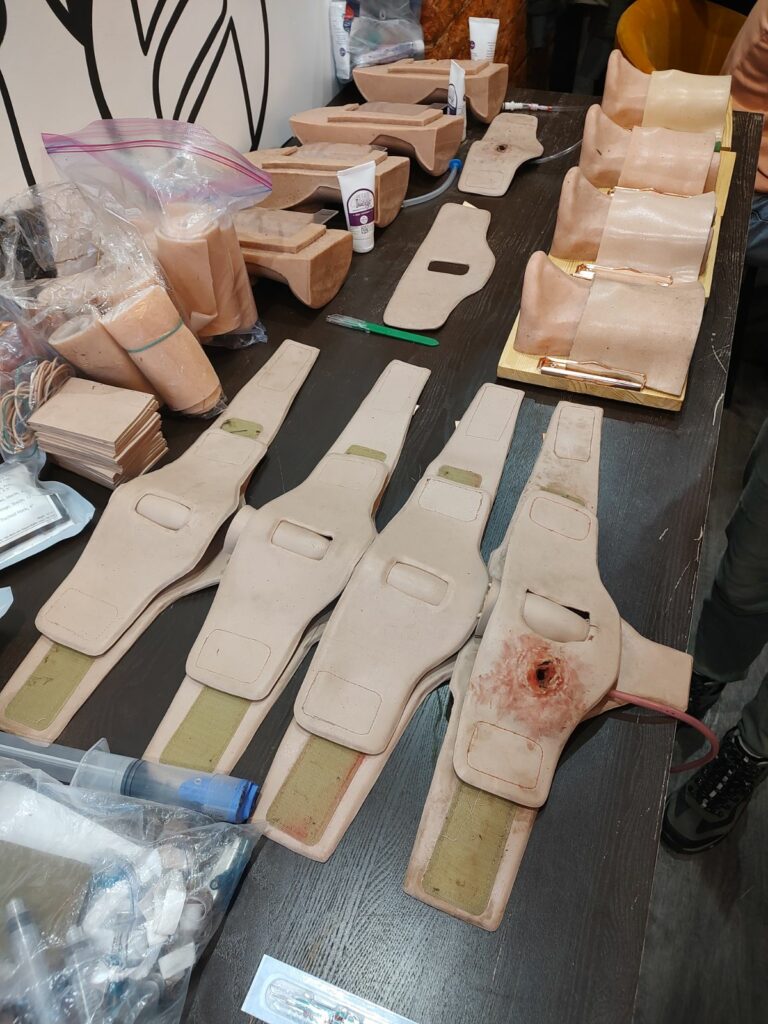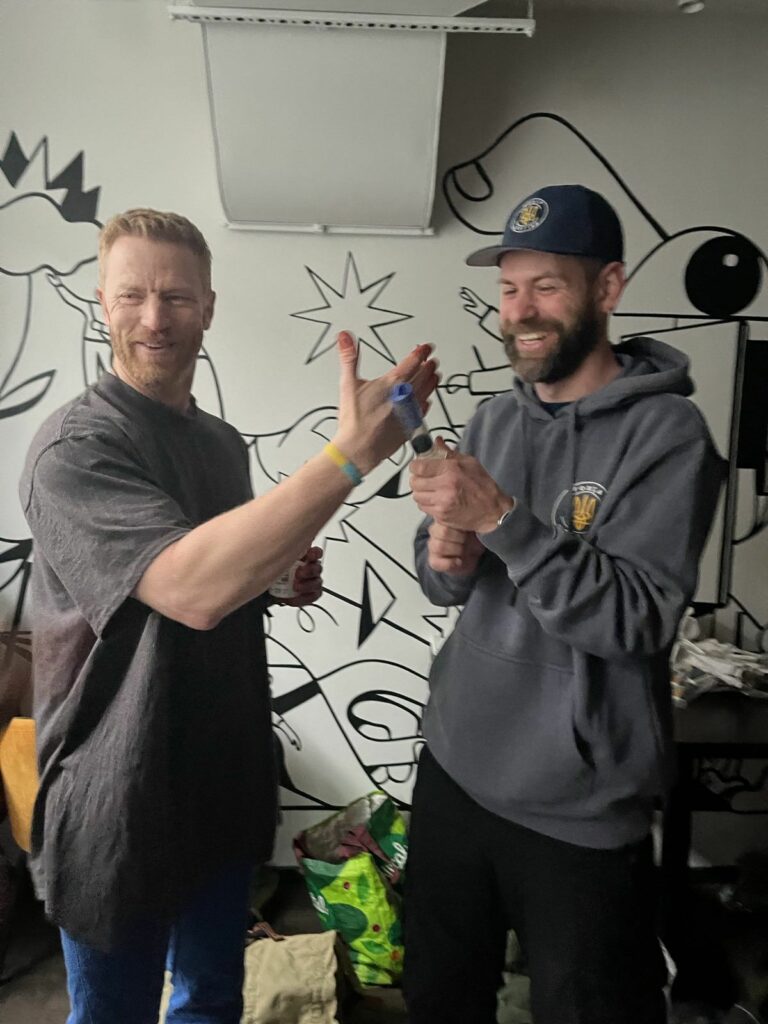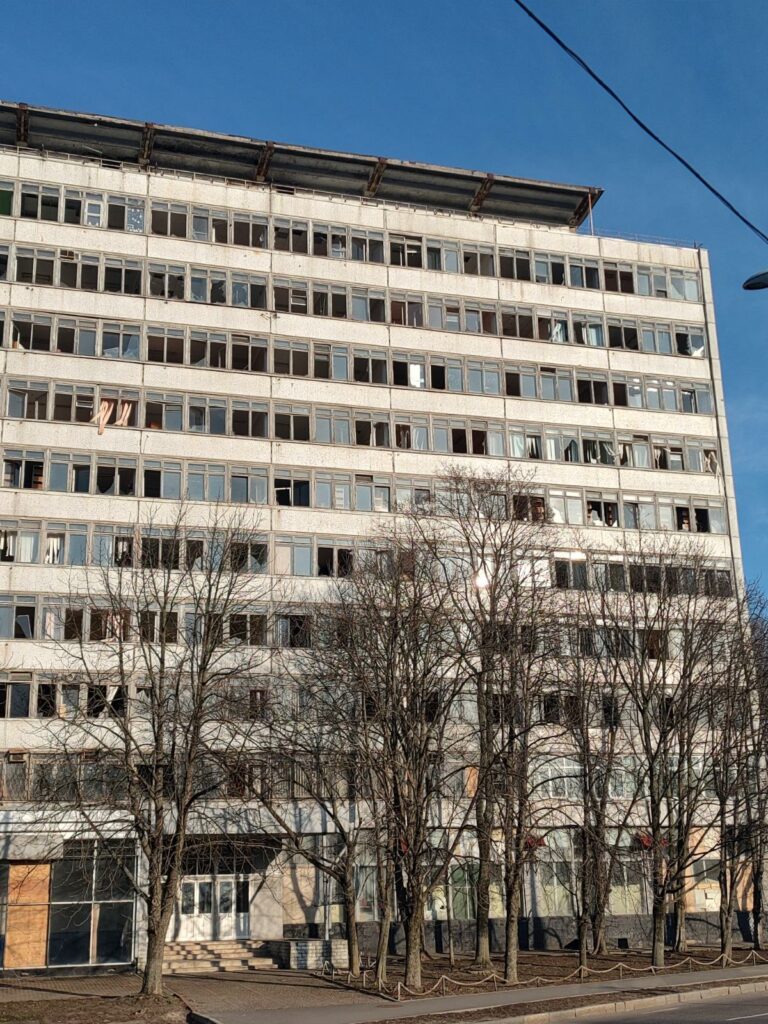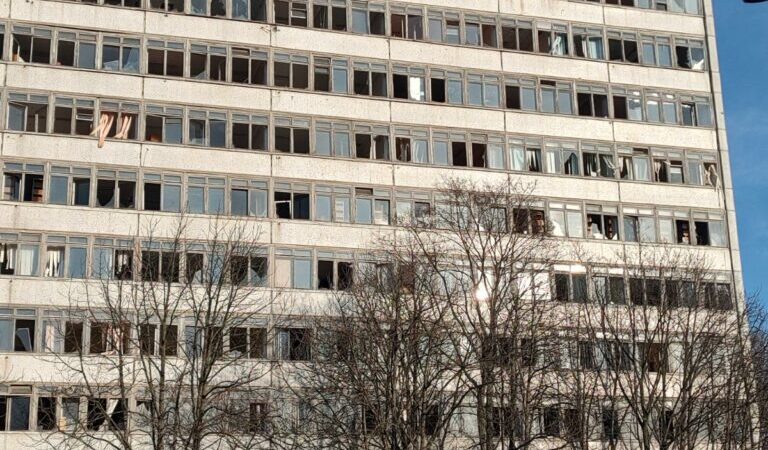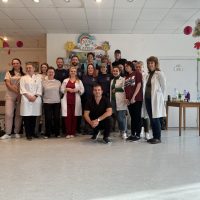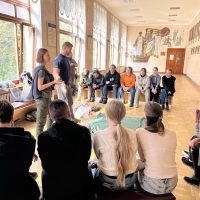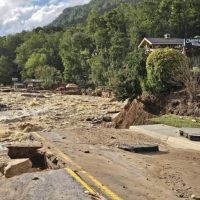Dear friends –
I wanted to add a mid-final week update – maybe because I am holding on to this trip as it has been so meaningful. The team is back in Dnipro, with our last three days of training scheduled before the mission ends. It is hard to believe that we are already at this point.
This past week has been one of changing dynamics that required significant flexibility from the team. After leaving our last training area, we were set to finish out our training with five days in a single spot. However, the night we got there we got word that the training would have to be cancelled due to renewed fears of drone strikes targeting large groups of people congregating. There was little appetite to put either students or our team at risk. However, the late change left us scrambling for a plan. Fortunately, Susanna was with us and had the ability to get a group of medical residents, medical students, pre-hospital providers, and tactical medical practitioners and instructors together for a short-notice training day. She was also able to help us establish a training space, where we have been working the last two days. We focused on the high acuity skills like IV and IO access, surgical airways, chest decompression, and whole blood transfusions again – our second iteration of these high level skills in three days. There was so much interest that we ended up staying a second day to offer a day of open practice, where we invited everyone back to get as many reps as possible on the various interventions. Even though these are medical residents, so much of their training is didactic with almost no hands-on practice. The last two days were the first that some have been able to do IVs on a real person, or actually go through a surgical airway. These repetitions are absolutely critical in learning these skills.
The drone threat was obvious throughout our time in the training area. Overnight on Monday, we heard several explosions outside our housing. We also had reporting that multiple drones were above the city, prompting the team to do the only thing we could, take shelter in an interior hallway and wait out the threat. I stepped out on the porch to get a better assessment, and was able to hear a drone overhead. Fortunately the threat passed relatively quickly and everyone was able to get some sleep back in beds. We learned this morning that a major power plant in the city was destroyed, further impacting the lives of everyone in the area. We had already experienced the rolling blackouts in the city as they ration power (ours was on from 1600-0800 the days we were there). It will likely take months for power to be fully restored. Later, during our training today, two of the attendees ran out of class in the middle due to a drone strike on a residential building, prompting them to launch a rescue effort. The rest of the week, we will be training local fire department personnel pre-hospital trauma medicine as they are often the first to respond to these missile and drone strikes, often also getting targeted by a delayed second strike designed to hit the first responders. This is the reality of Ukraine – civilian centers targeted by weapons of war and pre-hospital providers having to treat wounds analogous to combat injuries. The work we do remains critical, especially as the war drags on in its third year and the training opportunities become increasingly scarce.
As the team wraps up this latest mission, we are exceedingly grateful for all you have enabled us to do. The last few days especially demonstrated the resiliency and fortitude of this team – adjusting to ensure that this critical training is being provided, while at the same time honoring your faith in and support for us. As I said at the outset, it is hard to believe that the mission will end this week. It always feels like there is so much more to do. We are already planning for our return, hopefully in September. We always learn so much, which helps us refine how we teach and how we can make it most applicable to Ukraine.
From all of us here in Ukraine, thank you. Your contributions have enabled everything that we do here – which ultimately allows others to save lives.
In gratitude – Mike
